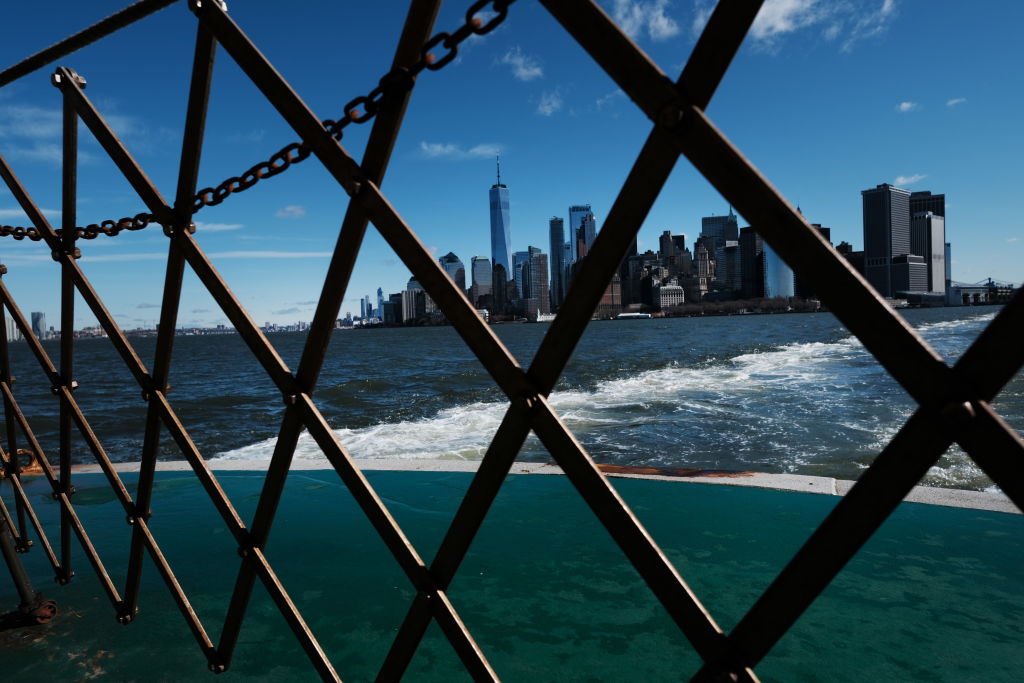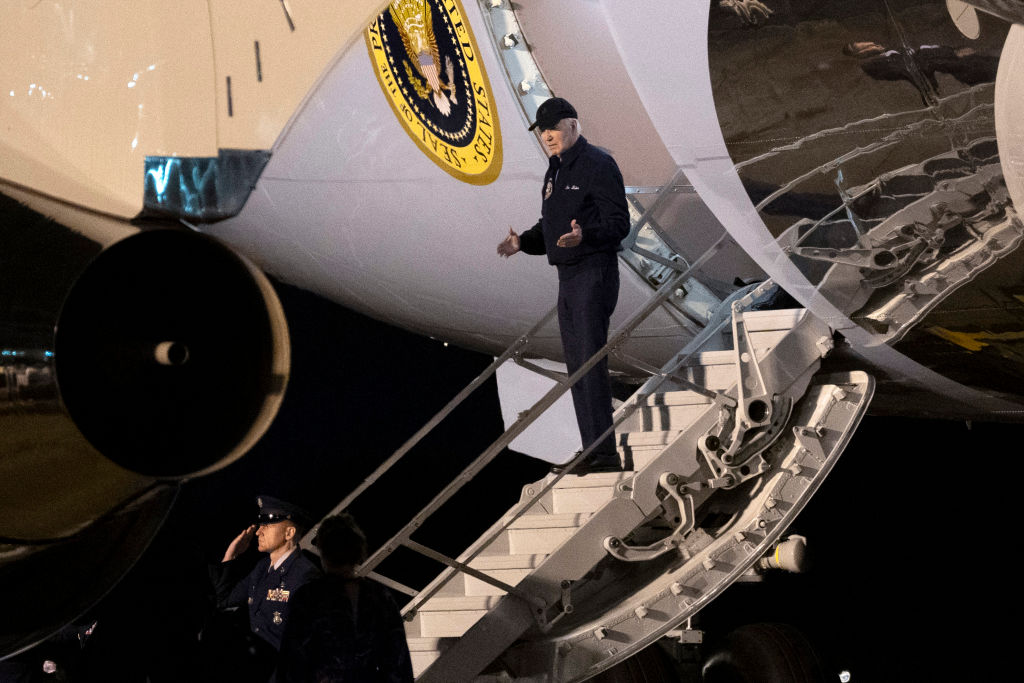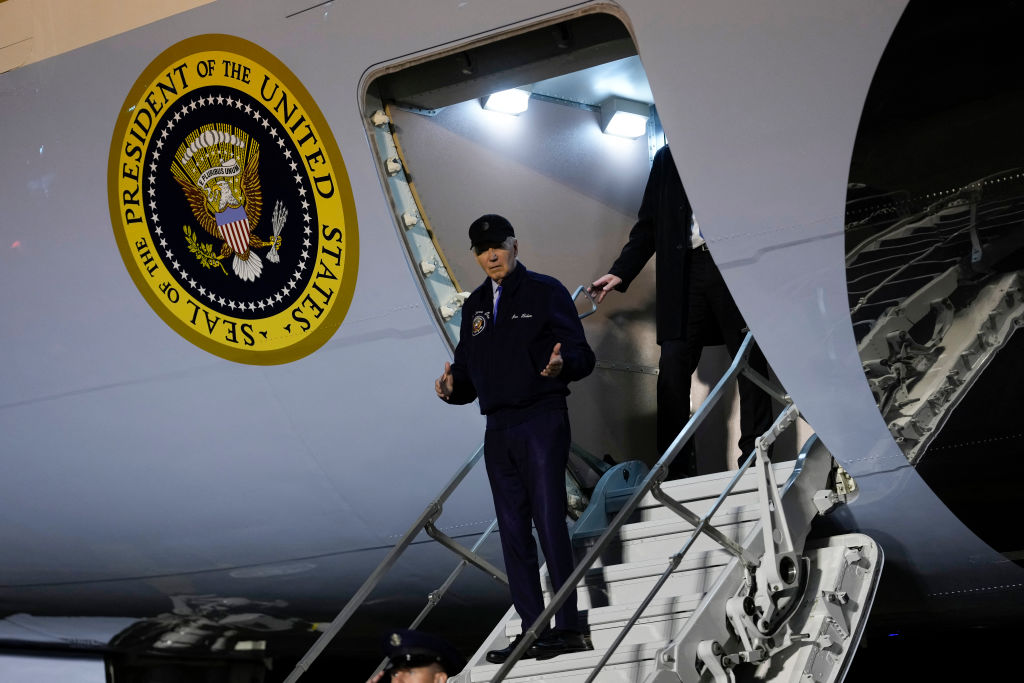This is a piece about death. Obviously death is a serious topic, perhaps as serious as anything you could possibly write about, but in these truly weird times of a global pandemic and unprecedented threat to what most people would conceive as normality, let’s start with a joke. How do you make ordinary citizens accept an indefinite period of economic shutdown and deprivation of their most basic civil liberties? Two weeks at a time!
There seems to be a bit of a trend regarding disclaimers among those who have an opinion in favor of a return to everyday life anytime soon so I’ll start with the usual caveats: I accept that coronavirus, COVID-19, SARS-CoV-2 or whatever you prefer to call it, is a serious health threat. It is very infectious and especially dangerous for those with underlying conditions. It can also kill those who are otherwise healthy, even children. It is a nasty virus and you are unequivocally better off not having it. If too many people contract it at the same time some local health systems will be overwhelmed and people that would otherwise have been saved will die for lack of ICU resources and ventilators. That is the reality of our situation. It is an exceedingly grim reality, but it is easily tractable and makes huge decisions with unknowable consequences seem routine and necessary.
The corollary of the huge decisions that we are collectively making — enforced quarantines, social isolation policy, economic shutdowns — are not covered in nearly the depth they should. Why? Because humans tend to think in absolutes, in that the spread of coronavirus is the worst threat possible. This is not only untrue, it is dangerously untrue: decisions we make today to prevent large-scale coronavirus infection will have serious repercussions in the future. Our response to the coronavirus threat is the potential genesis of more threats to civil society, be they political, economic or otherwise. Some of the measures that have been taken so far — such as the closure of businesses deemed to be non-essential — have immediate, short-term consequences, and the severity of what we’ve observed is nothing short of terrifying. The United States has experienced record-shattering growth in jobless claims for consecutive weeks. Who’s to say if those jobs will come back? Who can start to describe the devastation to individual lives if they don’t? In essence, we are failing to ask the basic question: what if aggressively preventing the spread of coronavirus ultimately causes more human suffering than the virus itself?
Donald Trump recently had the nerve to question the orthodoxy of flattening the curve and his abrupt abandonment of the topic suggests that the prevailing social mood is that of rampant fear, a fear that causes a bias to action in the present over whatever might happen in the months and years to come.
WE CANNOT LET THE CURE BE WORSE THAN THE PROBLEM ITSELF. AT THE END OF THE 15 DAY PERIOD, WE WILL MAKE A DECISION AS TO WHICH WAY WE WANT TO GO!
— Donald J. Trump (@realDonaldTrump) March 23, 2020
Unpalatable as it may be to some, another reality is that the preservation of life at any cost is not the objective of any democratic political system. I can predict with a high degree of confidence — unlike, for example, deaths from coronavirus — that no one would prefer to live under a system of governance where all political and social decisions are made solely to preserve life. There is a reason we don’t elect chief medical officers or other health officials to be prime ministers or presidents — because it is so painfully obvious that health considerations are only ever a small component of the complex decisions that are ostensibly made to optimize quality of life.
If you enjoy — albeit hopefully not to excess — drinking wine, eating junk food, smoking cigarettes, driving on public roads, cycling, paragliding, recreational marijuana, unprotected sex, amateur cage fighting, spear fishing, ocean swimming or anything with a non-negligible risk of death, you will surely appreciate the notion that many of the activities that make life worth living raise the probability of departing the mortal coil prematurely. Health officials, usually of the state-funded bureaucratic variety, would probably choose to restrict many of these pursuits if they had the political capital to do so.
Christopher Snowdon often covers the creep of state paternalism into ordinary life. His point is a simple one: we do not accept that some unelected group of experts should dictate what small personal health risks we choose to incur, because we know that health experts make decisions based on the sole, unweighted objective of improving health at the cost of nearly everything else.
The nuance applicable to voluntary risk should also extend somewhat to widespread mandatory quarantines — many are fond of pointing out that it is largely not for our own benefit that we are asked to self-isolate, it is for the elderly, infirm and those who are otherwise immunocompromised.
The logic goes something like this: any and all measures we take to prevent community transmission are justifiable because they will prevent infections and therefore prevent deaths among these vulnerable groups. In a medical sense this is irrefutable, but the underlying assumption of this logic is that the onus on the individual to protect themselves should be almost totally removed in favor of controlling the behavior of everyone, no matter how susceptible they may be. Some unsavory individuals prefer to make it personal and equate any resistance to an indefinite period of social isolation as wishing death upon those who are least likely to be able to fight the virus. Surely it would be simpler — and likely far less costly — to make government assistance available to those who choose to self-isolate. Should we not assume that those who are immunocompromised already take precautions for their own health?
The great irony of these policies of indefinite quarantine is that the requisite economic shutdowns are also going to be a death sentence for thousands of ordinary people, and because these deaths aren’t meticulously tracked and attributed to a specific virus they can easily be overlooked. This is the other epidemic of a modern, capitalist society experiencing economic decline — deaths of despair. This is a well established phenomenon with a known cause — the unemployment rate. It is not an oversimplification to make the claim that we are at a juncture where we can choose how people die — now, from coronavirus, or slowly over the many years to follow after an erosion of their economic prospects in life resulting in addiction or suicide. There is a further tragic irony inherent in the decision to curtail economic activity to flatten the curve of infections: all modeling on the ability of a society to limit the spread of coronavirus is based on incomplete data or speculative assumption about how restrictions on public life will translate to health outcomes. The economic modeling, such as that on possible GDP falls, deals with a problem so ludicrous in conventional peacetime economic analysis — indefinite forced industry closure — that there is no sensible set of parameters that can be fed in to get anything resembling a workable model. There is an immense amount of pain waiting for the global economy, but the fact that we can’t say how much or when has resulted in the near-universal proxy decision to ignore it entirely.
***
Get three months’ free access to The Spectator USA website —
then just $3.99/month. Subscribe here
***
If the sole metric by which we’ll measure success in facing this pandemic is the prevention of death then we must reckon with the base cowardice of our predicament: a life lost now to coronavirus is being treated as more important than one lost indirectly as a result of how we choose to respond to it. It is not hard to analyze how we’ve ended up here in this position of least accountability, the one in which we choose to make the most visible, emotive problem go away at the expense of a debt we’ll never pay in our lifetimes or the suffering of people we’ll never meet.
Several commentators have pointed out that those calling loudest for the most protracted shutdowns are either public servants or academics, people who will never bear the personal cost of this upheaval. It is a failing of our collective decision-making ability, as a sociopolitical system, that those with the least stake in the performance of the economy have the most influence in lobbying to throttle it. The damage that this dynamic does to trust in institutions and democracy itself cannot be overstated — how can hospitality workers, for example, possibly believe that politicians as a class of people care about them?
Daring to suggest that we should accept some risk to human life for the sake of salvaging the economy has become a tainted position, an unspeakable opinion. This is a grave error: the economy is not some abstract entity wholly divorced from human life. It is an enabler of it, and a critical factor in whether it’s worth living at all. It is likely that we’ll end up in a situation where deaths from coronavirus are far below whatever was projected at the start of the pandemic: this will, of course, be cited by governments worldwide as evidence of the wonderful success of the extreme preventative measures that were taken. We should all remember two very important facts: firstly, that it’s simply not possible to estimate how deadly coronavirus really is in absence of any widespread community testing, and secondly, that we will never properly account for the true, indirect human devastation caused by the economic restrictions we’ve already accepted as the new normal.

























